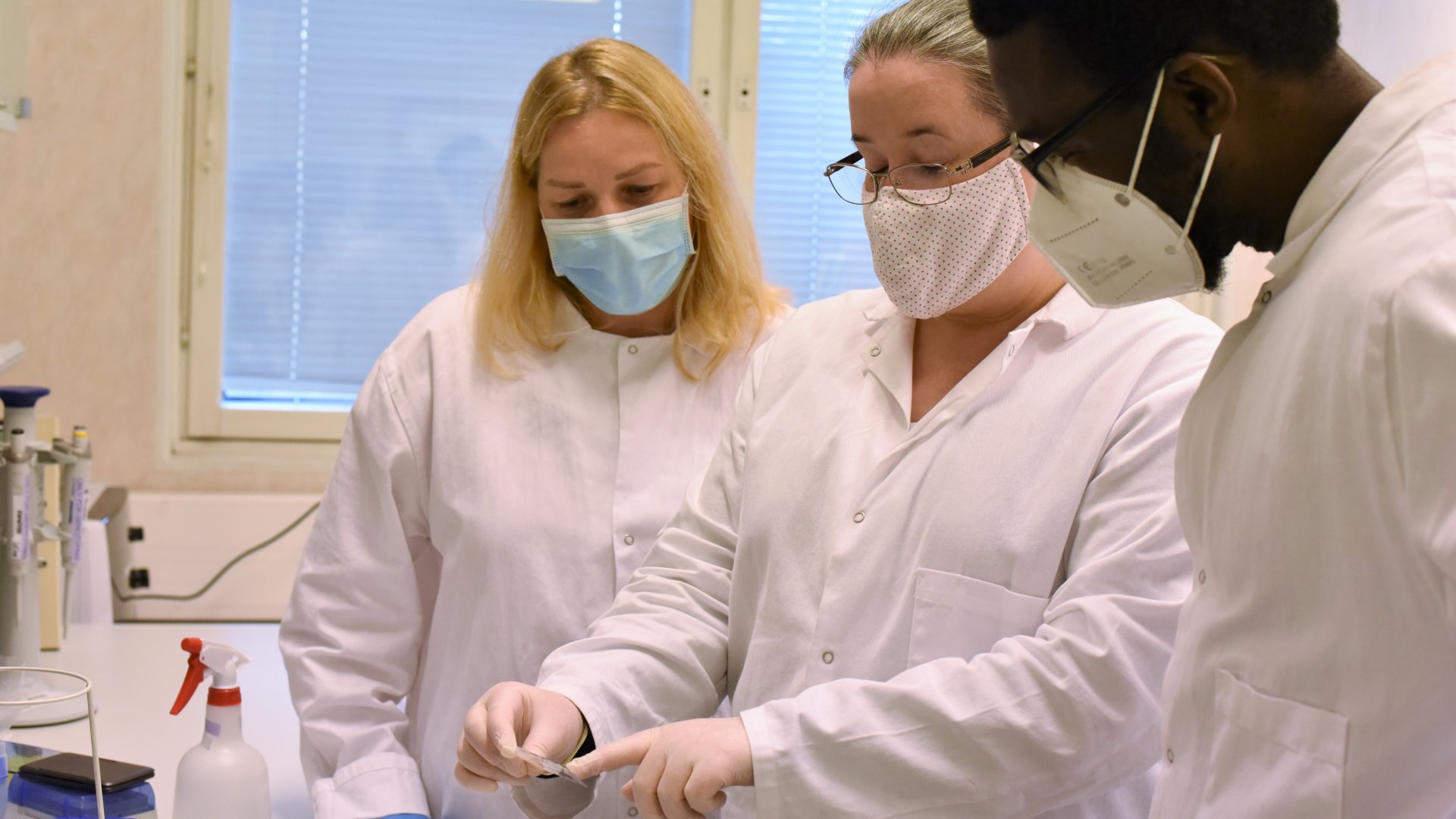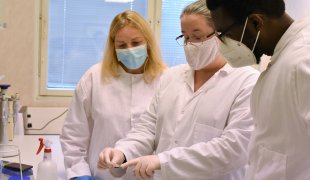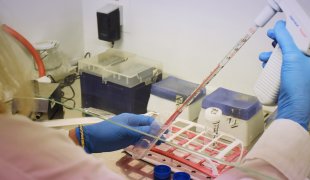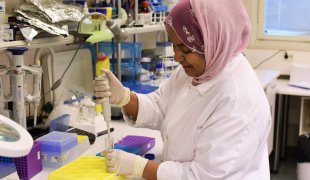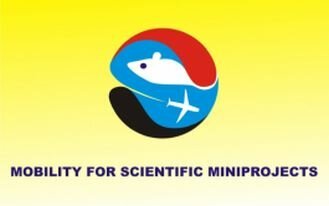
Tartu-Iceland research exchange program
Welcome University of Tartu medical students!
Welcome University of Iceland medical students!

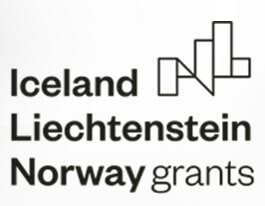
Under this Tartu-Iceland research exchange program funded by Iceland Liechtenstein Norway grants, medical students from the University of Tartu will travel to the University of Iceland to conduct a 1-month-long miniproject in basic medical science. Medical students from the University of Iceland will travel to the University of Tartu to conduct a 1-month-long miniproject here.
There are several different miniprojects available within each University, so have a look in the link below to see what would interest you.
Eestikeelse lisainformatsiooni saamiseks vajuta siia.
See miniprojects Welcome to Tartu Applying
Learn more about the program from the video!
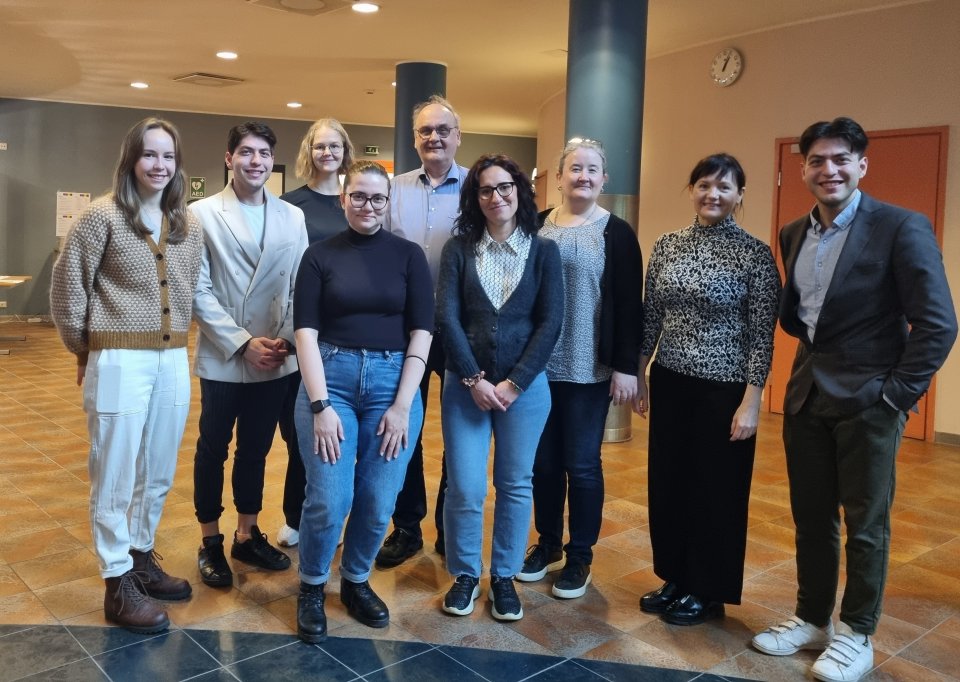
14th Oct 2023, in Biomedicum (Ravila 19, Tartu)
Our goal was to work with our collaborators, Prof Thór Eysteinsson and his postdoctoral researcher Dr Andrea García-Llorca, of the University of Iceland, to enhance curricula at University of Iceland and University of Tartu. We wanted to offer excellent research projects to our undergraduate medical students, for which they would gain ECTs.
We believe that our program is very important because our emphasis is on basic science. There are very few basic science exchange programs and a special feature of our program was that students graduating from our program had to write reports, and to present their data to peers and they were also involved in public science events.
Our students generated excellent data, as we saw in our meeting held at the end of our project. Our students learned lots of transferable skills too. So students gain a lot by taking part in programs like ours.
We worked really well together and despite all of the challenges with COVID, volcanoes and the ongoing war, our students did great work and we made great friends, making this a very valuable experience.
What kind of mini-projects did the students complete?
Students worked in our laboratories for 1 month, and despite this short time, they showed changes in white matter in the brain of models of Parkinson’s disease, changes in brain volume in a model of Wolfram syndrome, they observed changes memory in a model of obesity, they examined visual function and saw degenerative changes in models of age-related macular degeneration. Importantly, our projects were real-world – this was important for us, so that our students also saw how challenging science can be – they worked hard to optimise protocols and prepare samples.
Why is it important for medical students to take part in basic science?
University of Tartu and University of Iceland both expect their graduating medical students to contribute to medical science but internationally, the proportion of physicians who are also involved in research is declining. Standards set by national bodies in other countries also emphasise the importance of science in medicine.
Many studies have shown that students benefit from international exchanges, but the vast majority of exchanges in medicine are aimed at clinical skill development. In our program, we wanted to give medical undergraduates the experience of basic science, to learn new techniques and generate data on their own. By participating in our program, the students also improved transferable skills, such as teamwork and communication, and they were rewarded for their hard work with ECTs. We believe this program was a great way for University of Tartu and University of Iceland to collaborate, to enhance their curricula, and to provide great research opportunities for our students.
How well has the project gone?
The project has been a success for the students, and us, the project leaders. The pandemic meant we had to postpone the exchange program but after two years of working together, united by a common goal, we all met and it was so great to see how the students enjoyed their exchanges and to see what they learned.
We gained ethical approval to ask our students their opinion of our program and they were invited to provide anonymous feedback. We are still collecting data, but thus far, students note improvements in transferable skills, such as teamwork, presentation and time management skills. Critically for us, their science skills and ability to read science publications improved too. We are very happy to see this.
Indeed, we are currently preparing a manuscript on Guidelines to setting up a program like ours, and in the future, we will publish our student feedback.
It is a pity that our program has to come to an end, but all good things do! We view this as the beginning and we look forward to continue working with Prof Eysteinsson.
We are very grateful to all faculty and to our student participants!
University of Tartu faculty
- Dr Miriam Hickey (Coordinator)
- Dr Monika Jürgenson
- Dr Anu Sarv
University of Iceland faculty
- Prof Thór Eysteinsson
- Dr Andrea García-Llorca
Efe Ergür, 6th year medical student
I wanted to have the experience of working in a laboratory abroad, as the experience I acquired in Tartu was so unique and horizon-broadening. Additionally, the research topics were quite interesting and included methods that were not familiar to me.
In 2022, I joined Prof. Eysteinsson’s lab to study the electrophysiology of vision. A big surprise was to observe the exactly same methods being used in real patients in clinical practise. The demonstration of such transferability of research to clinical setting was something I didn’t know, or expect before.
I have met amazing seniors and colleagues throughout the research program, where discussing our ideas and studies were very fruitful. Additionally, the field of research I took part was very interesting for me that I would like to continue with similar opportunities in future; and hopefully incorprate that into my daily medical practise.
Ege Ergür, 6th year medical student
Since the start of my medical school journey, I always believed that the high-quality patient care can only be achieved through advancements in medical research and translation of these findings, with strong collaboration of physicians and scientists. I was always interested how advancements in research affect our clinical work, for example how new lab-markers allow us to diagnose diseases with high sensitivity and specificity, and how new and targeted drugs can effectively control diseases. Therefore, I wanted to take part in a research exchange to observe how medical research is planned and conducted from start to finish. The Tartu-Iceland research exchange program allowed us observe all steps of how a research project is conducted, and I did not want to miss this chance to collaborate with valuable scientists and their research work.
In my project with Prof Thor Eysteinsson, I learned about the different methods of experimentation to reveal the anatomical and physiological function of eyes in a delicate detail. In addition, I was able to put my skills in practise while being supervised by one of the experts in this field in Europe and world.
As young scholars with interest in pursuing medical research beside our clinical careers, this one-of-a-kind exchange program allowed us to gain a valuable experience of the process from laboratory to publishing.
See how students in our program learned about communicating science to peers and the public
Science communication workshop I
Science communication workshop II
Please see how we assessed our program here
Here are our survey instruments to find out about student understanding of science before participating in a research project (pre-questionnaire), after participating in a research project (post-questionnaire), and whether their participation in a science project stimulated further interest in science (post + 1-year questionnaire).
Eestikeelsed küsimustikud
Eelküsimustik
Järelküsimustik
Järelküsimustik + 1. aasta küsimustik
For our Icelandic colleagues, please see our questionnaires here
Spurningalisti í byrjun
Spurningalisti í lok verkefnis
Spurningalisti + 1 ári eftir lok verkefnis
Frequently Asked Questions
- The program will begin in January 2022 and end in August 2023, but each student can choose when they want to travel.
- We will need some flexibility on your part so that we can make sure that all of the support staff are there to help you when you arrive!
- University of Tartu students:
- Deadline for applications is 23:59, 23rd Dec 2022.
- University of Iceland students:
- Deadline for applications is 23:59, 27th Nov 2022.
- Due to the COVID pandemic, we have delayed our program.
- We were originally supposed to start in 2020!
- We hope that no more delays due to the global pandemic will occur.
- However, our program will continue comply with all local, national and international guidelines.
- Your safety and the safety of our collaborators and faculty are paramount.
- Your safety and the safety of our collaborators and faculty are paramount.
- For information about COVID within Estonia, please visit here.
- For information about COVID within the University of Tartu, please visit here.
- For information about COVID within Iceland, please visit here.
- For information about COVID within the University of Iceland, please visit here.
- University of Tartu medical undergraduates from any academic year.
- University of Iceland medical undergraduates from any academic year.
- All participating students must be in good academic standing and currently in active studies.
- Unfortunately, we cannot offer places to students who are taking a year off, for example.
This is an important question. You are a medical undergraduate. Why is it important for medical undergraduates to take part in basic science? Well, basic science is where new drug targets come from, it is where we develop new drugs and techniques, and it can help us better understand disease processes and disease progression.
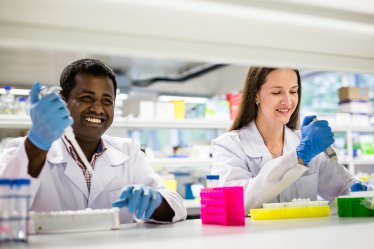
Graduates of Medicine of the University of Tartu and the University of Iceland are expected to be capable of contributing to science and international guidelines also recommend that physicians take part in research. Basic science is incredibly important. Without it, we cannot move forward into humans!
This program is specifically designed to increase your knowledge of basic medical science by giving you a research project that you will be responsible for, that you will generate data for and that you will present. And you get to travel to beautiful Iceland or Estonia!
What does this mean?
You should be able to create new data that benefits patients.
What would that data be with respect to basic medical science?
- It could be a new drug target for a disease
- It could be a new mechanism underlying a disease or condition
- It could be a new symptom that no-one has described before or a new type of pathology that no-one has described before
- It could be a new way to analyse the progression of a disease
- But there are many more ways you could contribute new data too!
- Travel!
- ECTs – each student will receive 6 ECTs upon successful completion of their miniproject
- Skill development
- Modern medical graduates are expected to be good communicators, to be scholarly, to be leaders and collaborators.
- In this program, you will learn these skills!
- During your miniproject, you will generate data and then write a scientific report on your project. You will present your data to other students on the program and to the faculty overseeing the program. Finally, you will take part in European Researcher’s night and tell the public about your experience, and explain your miniproject.
- The faculty overseeing this program are scientists and educators. We know that science is not predictable. We know that your projects may not work out as we expect. But that is the beauty of science! Our job as scientists is to interpret our results, whatever they may be.
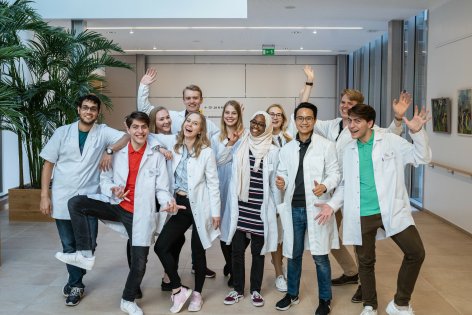
- Flights, accomodation and daily costs (e.g., food) will be paid for by the program. All you need to do is work hard and enjoy yourself!
- Once you have been accepted we will discuss the financial details, for example how to log your receipts.
- See the list of miniprojects above.
- E-mail Dr Miriam Hickey (miriam.ann.hickey@ut.ee) or Dr Monika Jürgenson (monika.jurgenson@ut.ee).
- Students from University of Iceland can also email Prof. Þór Eysteinsson (thoreys@hi.is).



